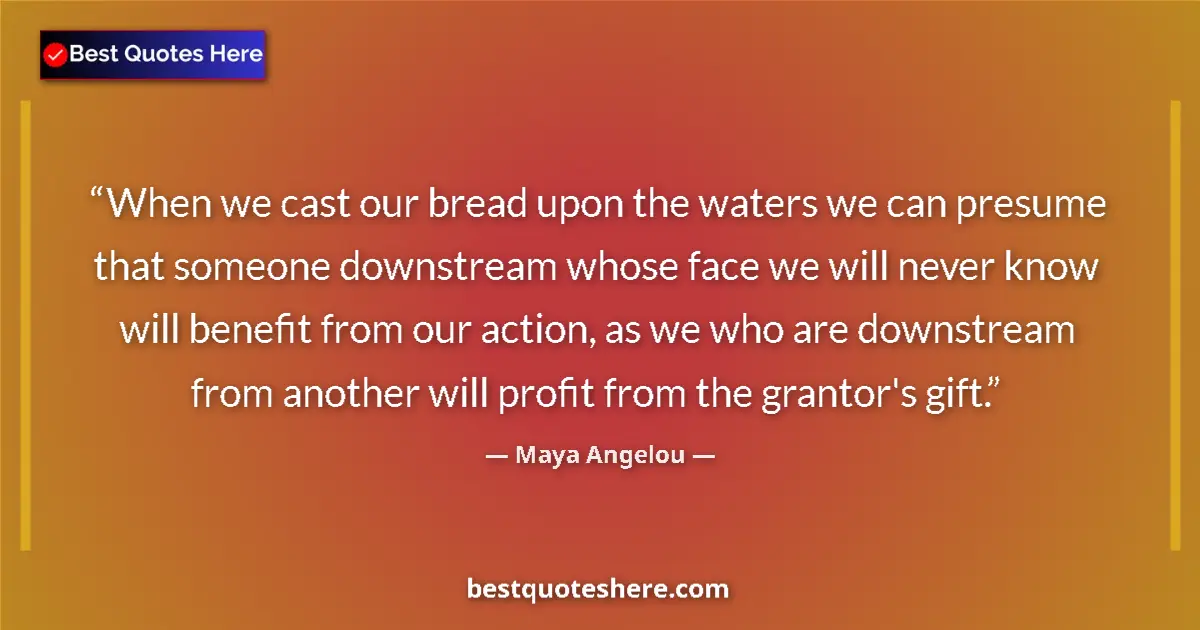"When we cast our bread upon the..." - Quote by Maya Angelou
When we cast our bread upon the waters we can presume that someone downstream whose face we will never know will benefit from our action, as we who are downstream from another will profit from the grantor's gift.

More by Maya Angelou
“Ask for what you want and be prepared to get it!”
“Hate, it has caused a lot of problems in the world, but has not solved one yet.”
“Let's tell the truth to people. When people ask, 'How are you?' have the nerve sometimes to answer truthfully. You must know, however, that people will start avaoiding you because, they, too, have knees that pain them and heads that hurt and they don't want to know about yours. But think of it this way: If people avoid you, you will have more time to meditate and do fine research on a cure for whatever truly afflicts you.”
More on Generosity
“I love him whose soul is lavish, who wanteth no thanks and doth not give back: for he always bestoweth, and desireth not to keep for himself.”
“The charitable say in effect, 'I seem to have more than I need and you seem to have less than you need. I would like to share my excess with you.' Fine, if my excess is tangible, money or goods, and fine if not, for I learned that to be charitable with gestures and words can bring enormous joy and repair injured feelings.”
“To generous souls every task is noble.”
More on Giving
“The richest persons are those who give most in service to others.”
“Since time is the one immaterial object which we cannot influence - neither speed up nor slow down, add to nor diminish - it is an imponderably valuable gift. Each of us has a few minutes a day or a few hours a week which we could donate to an old folks home or a children's hospital ward. The elderly whose pillows we plump or whose water pitchers we refill may or may not thank us for our gift, but the gift is upholding the foundation of the universe.”
“I've spoken in every state in the union, meeting and hugging the people who later bought my books. I spoke to anybody who wanted to hear me, including 1,000 nuns who could pay me only with homemade bread.”